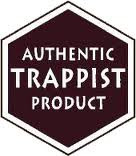1. Never ever buy (Italian) real-estate through a real-estate agent. And especially not through these websites designed for foreigners looking for property. The prices on these websites are 30% to 50% (!) higher than the seller's asking price. Ideally, you should try to find out who are the owners yourself or via a local friend. Most sellers would be happy to bypass the agency (if at all possible) and sell to you directly. After all, they have to pay the commission.
2. Often, with the purchase of a house comes a local geometer. A man (or woman) who turns up unexpectedly when the sollicitor's act is signed and who promises he'll arrange everything for you. In 99% of the cases, this geometer is an imposter whose only concern is to try to gain your confidence and then to rip you off. Christine and I got rid of our geometer just in time. An English family who moved here a couple of years ago wasn't so lucky. Our advice: After you've purchased your property and you want to restore it, look for your own geometer or architect. Compare prices and never trust anyone who doesn't want to put a price on paper. In Italy there are official fees which every geometer should adhere to. If not... he or she's no good.
3. Study the geometer's estimate for the restoration carefully. It is almost a given that it will be far from complete. What about sewers? What about the seismic study? What about the "law 10" concerning insulation standards?
4. Be aware of builders or any other workers presented to you by your geometer. It is likely that they have to pay the geometer a commission for having received the job through him. In some cases (like ours), this may go up to 20%! In the end, YOU will have to pay this commission. Ask around. Find your own contractor, plumber etc., preferably in another town (the further the better - hence there is a smaller risk that this person is connected to your geometer) and compare prices with the contractor presented to you by the geometer. This will most probably make your geometer very upset. Not surprisingly because you're about to sink his plans for a new and fancy car. Tough luck for him.
5. Be aware of supplements. Many workers will only present an "estimate" of the work to be done. Often they will claim that more work or material was needed to do a certain job and they'll happily charge you for it. No matter what price was agreed in the "estimate". Don't agree on a job to be done unless you have the final price black and white on paper. This will avoid unnecessary discussion afterwards.
6. This is very important: No matter how difficult this must be, please please make sure that you (or a friend you trust) is always present at the building site when work is carried out. And make sure that the site is closed when no work is being done. The house of the English family I just told you about was literally STRIPPED by the builder. Wooden floors were removed ("they were rotten anyway") etc etc. This family lost in total about 100.000€!!! With "total" I mean being overcharged by geometer, overcharged by the builder, materials gone etc etc. In any case, being present will also prevent you from finding some nasty surprises when you come to visit your newly finished dreamhouse. Hey... where's the water tap I needed here? And look at the floor! It's laid upside down! And who decided on these tiles?...
7. Budget. When you've received the geometer's estimate about all the works to be done etc. and you've made all the financial calculations about your project: DOUBLE IT! You can rest assured that you'll run into "unexpected expenses". Either they'll discover that the foundations are in a worse state than expected, they'll tell you that the house needs an additional supporting wall, they'll inform you that certain works were not included in the contract, and so on and so on... Believe me: DOUBLE IT! Of course, this only refers to the works to be done and excludes the purchase price.
8. Administration. Italy is a country keen on its paper tradition. Be prepared to have to drive to the capital of your province at least a couple of times (driver's license, car license plate,...), to the main town nearby ("tessera sanitaria"; the social security card, and so on) and to your local commune administration.
9. Continuing on the paper tradition, make sure that - if there's any doubt - you have the person in question write it down on paper. For example: If your geometer tells you: "The law 10 doesn't apply here so you don't need a thermal study", you reply: "Allright. Put it in writing for me then". Or: If your builder tells you: "Just a bit of extra concrete and this crack in the wall will not get any bigger", you reply: "Really? In that case you wouldn't mind writing that down for me?"...
10. And finally: expect the unexpected. :-)
I know, all of this sounds a bit negative. I should indeed mention that there are lots of honest and hard-working people in Italy. And that it is a fantastic place to live in. But I thought I could better warn you in case you were starting to have similar plans after reading my blog. It's better to be prepared. This will make it much more likely that your venture will eventually succeed. Because on the telly they'll only show you success stories. Not the stories of people who lost everything because of their dream.
Friday, August 27, 2010
Subscribe to:
Post Comments (Atom)

No comments:
Post a Comment